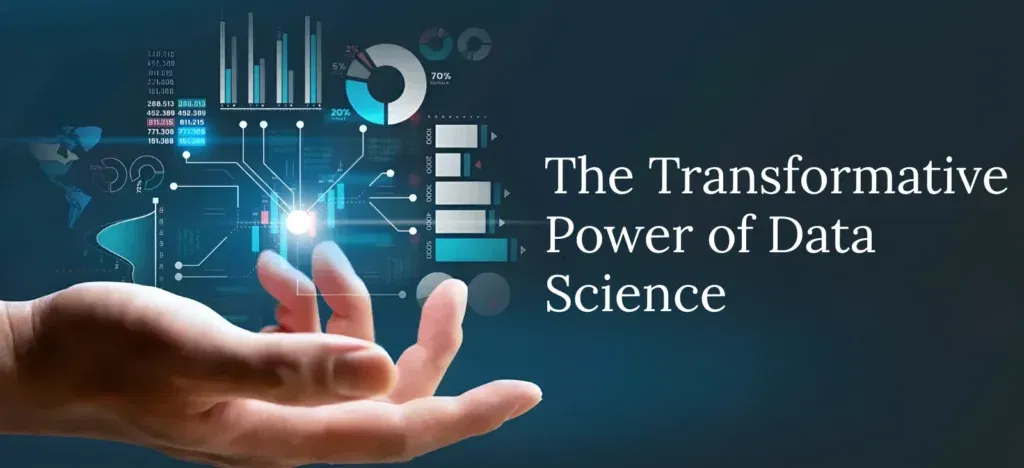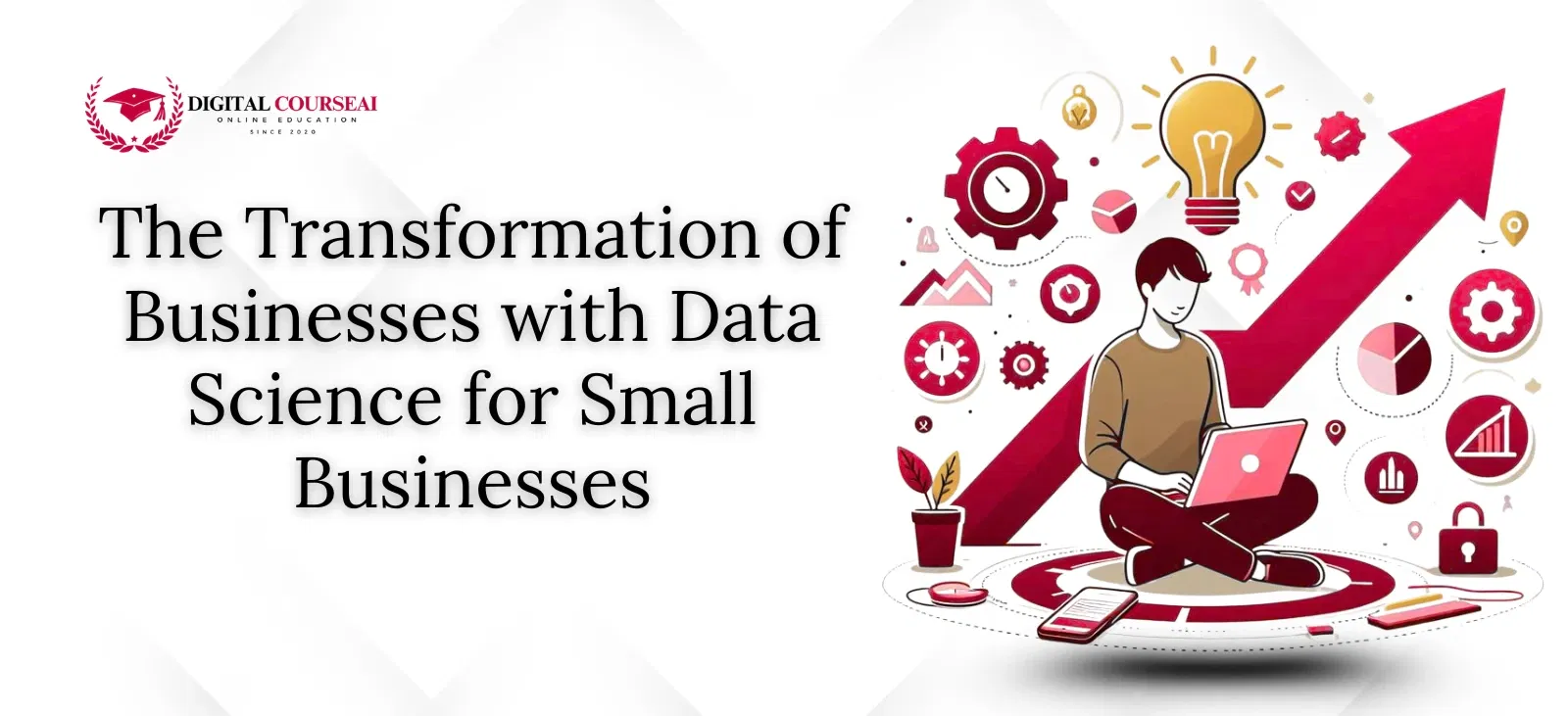Introduction
Data science for small businesses is now primarily the domain of larger organizations. It can be a large enabler for both organizations to foster growth, efficiency, and competitiveness.
Thanks to new scalable cloud solutions. Open-source tools and cost-effective analytics-as-a-service, small and midsized enterprises (SMEs). It can now harness the full potential of data — just like the larger competitors.
This has fundamentally changed how data science for small businesses functions. They are now asking and answering informed questions. That was once too complex or just impossible.
Overcoming Challenges with Data Science for small businesses
Of course, small and medium-sized companies have challenges of their own, including: competition from traditional established industry players; managing and attaining internal transparency; and managing growth and continuing revenue maintenance.
Social Data Science for small business is a systematic way to navigate these challenges. With data in hand, companies can outline Key Performance Indicators (KPIs) or policy goals to have their employees believing in a common mission.
Solving Operational and Marketing Issues
For example, a mid-sized audiobooks platform had stagnant revenue and declining retention of customers.
With a dedicated data team exploring user behavior, the team found that customer attrition was tied to low-rated new releases, and their marketing was creating retention with a highly churned month before retention.
Driving Growth with Targeted Solutions
Upon identifying the issues, the market platform creates a data-driven strategy to add a dashboard to visualize audiobook usage, a recommender system based on ML to enhance the customer experience, and secured marketing to a stable customer base.
This application of data science for small businesses not only solved their original problem but also positioned them for growth and reinvestment in the future.
How to Grow from a Small to Mid-Sized Business Using Data?
For any small business to leverage data to grow, it must start with a clear, measurable outcome. Rather than broad goals like “increase sales”, the business should be asking specific questions like “What’s the lifetime value of a customer acquired on social media?” or “Which product feature is causing the greatest user drop-off?”
From here, small businesses can generate data-led insights to operationalize. Conduct simple A/B tests on a website, analyze customer feedback to improve a product, or utilize data to optimize ad spend.
As the business grows, they can mature their approaches to more sophisticated tools and strategies, like predictive modelling or personalization, rather than their basic analytics.
How to Use a Data-Driven Business Strategy for a Mid-Sized Company?
For a medium-sized company, a data-driven strategy requires much more than just conducting a few analyses; it requires a shift in culture.
First, you will need to assemble a cross-section data team bringing employees from marketing, sales, product, etc. to identify data potential use cases across the organization with the largest impacts.
You may analyze data to forecast demand and inventory, review data on sales funnel metrics to identify constraints, or rely on customer data to create highly personal marketing campaigns.
The important thing is to make data a part of daily decision-making everywhere, from C-suite strategy meetings to day one training of frontline employees.
Crafting a Strategic Approach to Data Analytics
Establishing a strategy of data science for small business, which includes data analytics, will require a solid plan and vision. It is a high-stakes, high-reward project, and the focus should be on your business strategy.
These are the most important pieces of an effective small and medium-sized business data analytics strategy:
1) Define Your Goals
Before you can do anything with data, you need to know, ‘What do I want?’ Do I want a complete 360-degree view of my customer? Do I want to improve on a process?
A clear goal can create the structure for the entire strategy and provide context for measuring the success of your data initiatives.
2) Identify Capabilities and Tools
Identify the capabilities you require in order to achieve your goals. You may also want to explore analytics-as-a-service platforms that will provide you with extremely good capabilities and allow you to obtain the service without considerable capital infrastructure.
3) Research and Benchmark
You will need to do a significant amount of competitive analysis in order to see what other similar businesses are doing with data. What technologies are they deploying, and what are their results?
4) Consult with Experts
Most SMEs do not have the data science talent required for them to successfully deliver these kinds of projects internally. Working with experts is important. They will help you define your top use cases, draft pilot projects that align to your business goals, and realize capabilities that will respond to your unique needs.
5) Establish Data Governance
Once you start to collect and analyse the data, how you comply with the GDPR and CCPA are things you should think about from the very beginning. It is a vital component in your data strategy.
A governance framework that is focused on will allow you to store and manage the data that you collect and do it ethically while building trust with your customers.
For professionals and businesses in the Delhi-NCR region, the best data science training institute in Gurgaon can provide the expertise needed to implement these strategies effectively.
The Transformative Power of Data Science

The possibilities of data analytics for data science firms of all sizes are unlimited. With big data, SMEs are able to derive new insights that can influence revenue, enhance customer experiences, and drive innovation.
The idea that big data is only a big company tool is outdated, and organisations of all sizes can take advantage of affordable, scalable solutions to positively influence strategic decision-making, and the competitive advantages are significant!
Whether it’s data science for improving your supply chain or for enhancing the customer experience, the business application of data science is no longer a competitive differentiator; it is a requirement for future competitiveness and success.
FAQs
1) How can data science be used in business?
It influences superior decision-making through the analysis of data to predict trends and thereby improve operations and enhance the individualised experience of customers.
2) Can I start a business with data science?
Yes, you can start a business of data science and artificial intelligence/machine learning products or as a consulting service. It is necessary to isolate a well-defined problem, which is almost a certain dollar problem.
3) What are the types of data science used in business?
The four types of analytics are Descriptive (what happened), Diagnostic (why it happened), Predictive (what is going to happen), and Prescriptive (what should happen).
4) What is the 80/20 rule in data science?
The Pareto Principle means that 80% of the result is attributed to 20% of the causes or efforts. Therefore, it frequently means that 80% of the time a data scientist spends is on the cleaning and preparation of data.
5) Will AI replace data science?
No, data science is not going to be replaced by artificial intelligence. It will change the type of work that the data scientist will do. Many routine parts of their jobs will be automated. The data scientist will be utilizing their skills for more high-level strategic-type work, working in a context of business and ethical review of AI systems.
Also Read: How to Leverage User Data for Personalized Marketing

